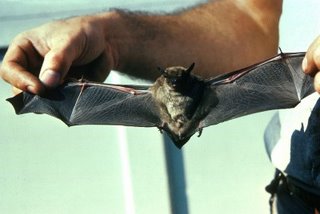Vaccine could Help Save Endangered Ethiopian Wolves
PhysOrg.com
12 Oct 2006
Photo courtesy of PhysOrg.com
Researchers have produced the strongest evidence yet to suggest that a targeted reactive vaccination programme, rather than blanket vaccination, can control infectious diseases like rabies in threatened wild canid populations (dogs, wolves and foxes). The research team from Oxford University, Glasgow University and Edinburgh University demonstrated that by vaccinating just thirty per cent of the Ethiopian wolf population, they could reduce the spread of rabies during an outbreak and consequently, the number of animals that die from this disease. Their study, published in the journal Nature, suggests that by vaccinating wolf packs living in the connecting mountain valleys close to the outbreak, they can contain disease outbreaks with unexpectedly low overall levels of vaccine coverage.
The research team from Oxford University, Glasgow University and Edinburgh University demonstrated that by vaccinating just thirty per cent of the Ethiopian wolf population, they could reduce the spread of rabies during an outbreak and consequently, the number of animals that die from this disease. Their study, published in the journal Nature, suggests that by vaccinating wolf packs living in the connecting mountain valleys close to the outbreak, they can contain disease outbreaks with unexpectedly low overall levels of vaccine coverage.
For nearly twenty years Oxford University’s Wildlife Conservation Research Unit (WildCRU) has been studying these animals and in 1995 established the Ethiopian Wolf Conservation Programme (EWCP) to address the most urgent threat to wolf survival. The population of just 500 can only be found in remote mountain enclaves in the Ethiopian Highlands. There are six subpopulations of between 10 and 50, with the largest group of 350 living in the Bale Mountains in the southeast. Canid diseases, such as rabies and distemper, are the major killers with domestic dogs being the main disease-carriers. The EWCP continues to vaccinate domestic dogs around wolf habitat to protect the wolves.
After rabies outbreaks in the Bale Mountains in the early 1990s, which wiped out three quarters of the Ethiopian wolf population in this area, an emergency vaccination programme was introduced in 2003 in response to yet another outbreak that year.
Increase In Oregon's Animal Rabies Cases Prompts Prevention Advice
Central Point News (Posted by CentralPointNews.com)
12 Oct 2006
Photo courtesy of CentralPointNews.com
 Salem, Oregon - The number of bats testing positive for rabies in Oregon has more than doubled over all of last year, prompting public health officials to remind people to protect themselves and their pets.
Salem, Oregon - The number of bats testing positive for rabies in Oregon has more than doubled over all of last year, prompting public health officials to remind people to protect themselves and their pets.As of Wednesday, 21 bats and two foxes had tested positive for rabies, compared with nine bats in 2005 and seven bats in 2004. The state public health laboratory tests bats for rabies when a human exposure to a bat or animal has taken place.
"People can do two things to protect themselves and their pets from rabies," said Emilio DeBess, D.V.M., public health veterinarian in the Oregon Department of Human Services. "Never handle bats. And make sure your cats and dogs are up to date on their rabies vaccines."
Rabies is an infectious viral disease that affects the nervous system and is caused by exposure to a rabid animal. Exposure is usually through a bite but can also occur through scratches and saliva contact with broken skin. It is almost always fatal once symptoms begin. Bats play an important role in the ecosystem, especially in controlling insects and aiding agriculture, DeBess said, but a small percentage can carry rabies.
Anti-bushmeat Campaign Goes Cinematic
iafrica.com
13 Oct 2006
Gerry Smith
Conservationists in Africa have long fought a losing battle to end the illegal and dangerous trade in bushmeat but one group is now hoping for better results from a cinematic campaign in Kenya. "Carcasses," a new film that debuted last week, aims to educate rural communities about the devastating consequences to health, wildlife and food security posed by the indiscriminate killing of animals for food.
The hour-long short feature, produced by the British-based Born Free Foundation, depicts one such community in Kenya struggling to survive after the wildlife on which it has depended for decades are hunted to extinction. The foundation, named for the book and film by naturalist Joy Adamson about the lioness Elsa in central Kenya's Rift Valley, intends to take the movie on a travelling road show to a dozen villages in rural Kenya in the coming weeks.
It hopes the drama and Kiswahili dialogue will register with villagers in a way that dry lectures condemning poaching from stern wildlife rangers or enthusiastic European animal rights activists may have failed.
Pat Durkin Column: Don't Let Baiters Use 'Yeah, but' Excuses
greenbaypressgazette.com
12 Oct 2006
Patrick Durkin
When university researchers from Georgia and Colorado announced proof last week that chronic wasting disease can be spread between deer through blood and saliva, the bait-and-feed guardians were neither fazed nor impressed.
Almost before we could download the study from the October 2006 issue of the journal Science and read it, Wisconsin's baiter-feeders put down their deer-corn buckets just long enough to dismiss the news with "yeah, but" e-mails: "Yeah, but should we pass a law that bans a doe from licking and grooming her fawns?"
That's a rebuttal? Let's follow that illogic. That must mean if a loving couple kisses passionately several times weekly, and they also peck their children on the face or lips, then it's OK for the entire family to eat scraped-off leftovers at a café twice daily.
Yep. They can share not only their meals, but they can swap unfinished meals and desserts with every other café customer — whether family or stranger. It's also OK for the café to never wash its plates, cups, glasses and eating utensils.





No comments:
Post a Comment